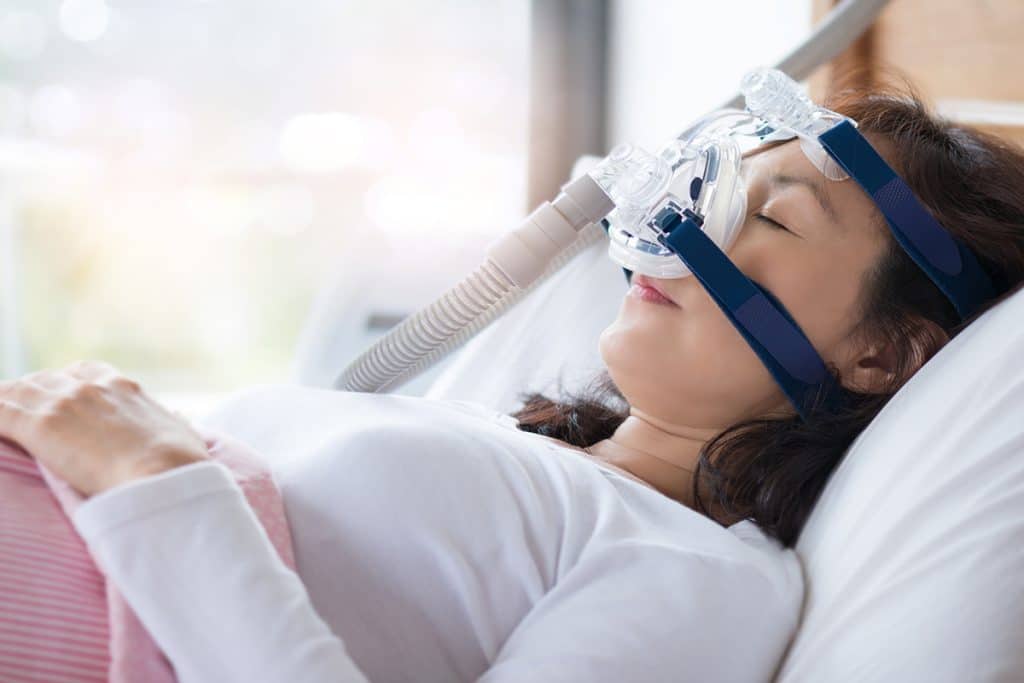How Dentists Diagnose Sleep Apnea

Sleep apnea is a common but often undiagnosed sleep disorder that can seriously affect your health and well-being. It is characterized by breathing interruptions during sleep, leading to snoring, fatigue, and other symptoms that interfere with your daily life.
But did you know your dentist can be critical in detecting and treating sleep apnea? In fact, dentists are often the first healthcare professionals to notice the signs of sleep apnea, as they can observe the physical effects of the disorder on your oral health.
From worn-down teeth to receding gums, these subtle signs can be a silent threat to your overall health. In this article, we'll explore how your dentist can detect sleep apnea and why this could be a game-changer for your health and well-being.
The link between sleep apnea and oral health
You might be surprised to learn that sleep apnea can have a significant impact on your oral health. One of the most common signs of sleep apnea is teeth grinding, or bruxism. This can lead to worn-down teeth, receding gums, and even tooth loss over time.
In addition to bruxism, sleep apnea also causes dry mouth, increasing the risk of tooth decay and gum disease. Finally, snoring and other breathing interruptions during sleep can cause inflammation in the mouth and throat, leading to a sore throat, bad breath, and other oral health problems.
How dentists can detect sleep apnea
Dentists are often the first healthcare professionals to detect the signs of sleep apnea. During a routine dental exam, your dentist will look for signs of teeth grinding, such as worn-down teeth and receding gums. They may also ask you about your sleep habits and any symptoms you've been experiencing, such as snoring or daytime fatigue. If your dentist suspects you have sleep apnea, they may refer you to a sleep specialist for further evaluation.
In addition to a visual exam, your dentist may also use a special device called a pulse oximeter to measure the oxygen levels in your blood while you sleep. This can help identify breathing interruptions that are characteristic of sleep apnea. Finally, your dentist may also take impressions of your teeth to create a custom oral appliance to help keep your airway open while you sleep.
Common signs and symptoms of sleep apnea
Many people with sleep apnea are unaware of the condition, as the symptoms can be subtle and easily dismissed. Some of the most common signs of sleep apnea include:
- Loud snoring
- Breathing interruptions during sleep
- Waking up feeling tired or groggy
- Headaches in the morning
- Difficulty concentrating during the day
- Irritability or mood swings
- Dry mouth or sore throat upon waking
If you are experiencing any of these symptoms, it's important to talk to your dentist or healthcare provider as soon as possible.
Sleep apnea can have serious consequences on your health if left untreated. In addition to the immediate effects of fatigue and difficulty concentrating, sleep apnea is also linked to a higher risk of heart disease, stroke, and other health problems. By detecting sleep apnea early, your dentist can help you get the treatment you need to improve your sleep quality and protect your overall health.
Treatment options for sleep apnea
There are several treatment options available for sleep apnea, depending on the severity of your condition. For mild cases of sleep apnea, lifestyle changes such as weight loss, exercise, and avoiding alcohol and sedatives before bed may be enough to improve symptoms.
For more severe cases, continuous positive airway pressure (CPAP) therapy may be recommended. This involves wearing a mask over your nose and mouth while you sleep, which delivers a steady stream of air to keep your airway open.
For some people with sleep apnea, a dental appliance may be a more comfortable and convenient alternative to CPAP therapy. These appliances are custom-made to fit your mouth and work by repositioning your jaw and tongue to keep your airway open while you sleep. They are typically more comfortable and easier to use than a CPAP machine and can be a great option for people who have trouble tolerating the mask or who travel frequently.
Tips for maintaining good oral health while undergoing sleep apnea treatment
If you are undergoing treatment for sleep apnea, it's important to take care of your oral health as well. Here are some tips to keep in mind:
- Practice good oral hygiene: Brush your teeth twice daily and floss daily to prevent tooth decay and gum disease.
- Stay hydrated: Drink plenty of water throughout the day to help combat dry mouth.
- Avoid alcohol and tobacco: These can both contribute to teeth grinding and dry mouth and can also interfere with your sleep quality.
- Keep your appliance clean: If you are using a dental appliance to treat sleep apnea, be sure to clean it regularly to prevent bacterial growth and odors.
Sleep Apnea Treatment in Cambridge
Sleep apnea is a serious condition that can have a significant impact on your health and well-being. By detecting the signs and symptoms of sleep apnea early, your dentist can play a critical role in helping you get the treatment you need.
Whether you opt for CPAP therapy or a dental appliance, the important thing is to take action and get the help you need to improve your sleep quality and protect your overall health. So if you're experiencing any of the symptoms of sleep apnea, contact us today at 617-868-7479.
